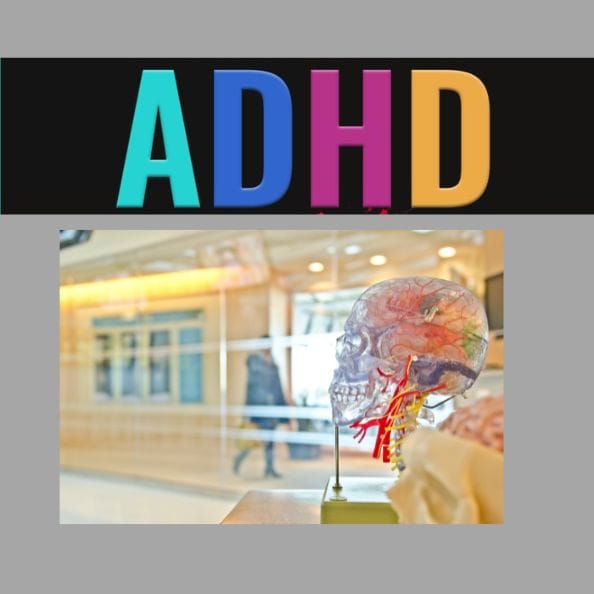Key Takeaways:
- ADHD is a complex condition with a variety of symptoms that can affect both children and adults.
- Accurate diagnosis of ADHD requires a comprehensive evaluation by a healthcare professional.
- Misconceptions about ADHD can lead to stigma and misunderstanding, making awareness and education crucial.
What is ADHD?
Attention Deficit Hyperactivity Disorder (ADHD) is a neurodevelopmental disorder that affects millions of people worldwide. It is characterized by symptoms such as inattention, hyperactivity, and impulsivity.
ADHD is not just about being easily distracted or overly energetic ... It is a medical condition that involves differences in brain development and brain activity that affect attention, the ability to sit still, and self-control.
ADHD is often diagnosed in childhood, but it can persist into adulthood, affecting various aspects of an individual's life, including academic performance, work, and relationships.
These symptoms can significantly impact daily functioning and quality of life. Understanding ADHD requires recognizing that it is a legitimate disorder that can be managed with appropriate treatment and support.
Symptoms of ADHD
The symptoms of ADHD are generally divided into two categories: inattention and hyperactivity-impulsivity.
- Inattention symptoms include difficulty sustaining attention, making careless mistakes, and being easily distracted. Individuals with ADHD may also have trouble organizing tasks and activities, often losing things necessary for tasks and activities.
- Hyperactivity-impulsivity symptoms include fidgeting, difficulty remaining seated, running or climbing in inappropriate situations, and talking excessively. * Impulsivity can manifest as difficulty waiting for one's turn, interrupting others, and making hasty decisions without considering the consequences.
These symptoms can vary in intensity and may change over time.
Diagnosing ADHD
Diagnosing ADHD is a comprehensive process that involves multiple steps.
It typically starts with a thorough medical and psychological evaluation. Healthcare professionals use various tools and criteria, such as the Diagnostic and Statistical Manual of Mental Disorders (DSM-5), to assess the presence and severity of ADHD symptoms.
A diagnosis of ADHD is not based on a single test. Instead, it involves gathering information from multiple sources, including parents, teachers, and the individual being evaluated.
*This information helps to rule out other conditions that may mimic ADHD symptoms and ensures an accurate diagnosis.
ADHD in Children
ADHD is often first identified in school-aged children when it begins to interfere with their academic performance and social interactions. Children with ADHD may struggle to follow instructions, complete tasks, and interact appropriately with peers.
*These challenges can lead to frustration, low self-esteem, and behavioral issues.
Early diagnosis and intervention are crucial for children with ADHD. Treatment plans may include
- behavioral therapy,
- educational support, and
- medication.
With the right support, children with ADHD can learn to manage their symptoms and succeed in school and other areas of life.
ADHD in Adults
While ADHD is commonly associated with children, it can also affect adults. Many adults with ADHD were not diagnosed as children and may have developed coping strategies to manage their symptoms. However, these strategies may not always be effective, leading to difficulties in work, relationships, and daily responsibilities.
Adults with ADHD may experience symptoms such as
- chronic disorganization,
- poor time management, and
- difficulty prioritizing tasks.
*They may also struggle with impulsivity, leading to issues such as frequent job changes, financial problems, and relationship conflicts.
**Treatment for adults with ADHD often includes medication, therapy, and lifestyle changes to help manage symptoms.
Common Misconceptions About ADHD
There are many misconceptions about ADHD that can contribute to stigma and misunderstanding.
- One common misconception is that ADHD is simply a lack of discipline or motivation ... *In reality, ADHD is a neurological disorder that affects brain function and behavior.
- Another misconception is that ADHD only affects children ... *While it is often diagnosed in childhood, ADHD can persist into adulthood and continue to impact an individual's life.
- Additionally, some people believe that ADHD is overdiagnosed or that it is a result of poor parenting ... *However, research shows that ADHD is a legitimate medical condition that requires appropriate diagnosis and treatment.
Treatment Options for ADHD
Treatment for ADHD typically involves a combination of medication, therapy, and lifestyle changes.
- Medications, such as stimulants and non-stimulants, can help manage symptoms by improving focus, attention, and impulse control. It is important to work with a healthcare professional to find the right medication and dosage.
- Behavioral therapy can also be beneficial for individuals with ADHD. This type of therapy focuses on developing coping strategies, improving organizational skills, and addressing any behavioral issues.
- Additionally, lifestyle changes, such as regular exercise, a healthy diet, and good sleep hygiene, can help manage ADHD symptoms.
The Role of Education and Support
Education and support are crucial for individuals with ADHD and their families.
Understanding the condition and its impact can help reduce stigma and promote acceptance. Support groups and educational resources can provide valuable information and connect individuals with others who share similar experiences.
Schools and workplaces can also play a significant role in supporting individuals with ADHD. Accommodations, such as extended time for tests, flexible work schedules, and organizational tools, can help individuals with ADHD succeed in academic and professional settings.
Living with ADHD
Living with ADHD can present challenges, but with the right support and strategies, individuals can lead successful and fulfilling lives. It is important to recognize and celebrate strengths, such as creativity, problem-solving skills, and the ability to think outside the box.
Building a strong support network, including family, friends, and healthcare professionals, can provide the necessary encouragement and assistance.
Developing effective coping strategies, such as using planners, setting reminders, and breaking tasks into smaller steps, can also help manage symptoms and improve daily functioning.
The Importance of Awareness and Advocacy
Raising awareness about ADHD is essential for promoting understanding and reducing stigma.
Advocacy efforts can help ensure that individuals with ADHD have access to the resources and support they need. This includes
- advocating for appropriate accommodations in schools and workplaces, and
- promoting research and funding for ADHD-related initiatives.
*By increasing awareness and advocating for change, we can create a more inclusive and supportive environment for individuals with ADHD.
**This can lead to better outcomes and improved quality of life for those affected by the condition.
FAQ
Q: What are the main symptoms of ADHD?
A: The main symptoms of ADHD are inattention, hyperactivity, and impulsivity.
Inattention symptoms include difficulty sustaining attention, making careless mistakes, and being easily distracted. Hyperactivity-impulsivity symptoms include fidgeting, difficulty remaining seated, and talking excessively.
Q: How is ADHD diagnosed?
A: ADHD is diagnosed through a comprehensive evaluation by a healthcare professional. This involves gathering information from multiple sources, such as parents, teachers, and the individual being evaluated. The evaluation includes a thorough medical and psychological assessment to rule out other conditions and ensure an accurate diagnosis.
Q: Can adults have ADHD?
A: Yes, adults can have ADHD. Many adults with ADHD were not diagnosed as children and may have developed coping strategies to manage their symptoms. However, these strategies may not always be effective, leading to difficulties in work, relationships, and daily responsibilities. Treatment for adults with ADHD often includes medication, therapy, and lifestyle changes.
Summing It Up
ADHD (Attention Deficit Hyperactivity Disorder) is a neurodevelopmental disorder affecting both children and adults, characterized by symptoms like inattention, hyperactivity, and impulsivity, which can significantly impact daily life.
Accurate diagnosis requires a comprehensive evaluation, and early intervention is crucial for managing symptoms. Treatment typically involves a combination of medication, therapy, and lifestyle changes, and both education and support play vital roles in helping individuals manage ADHD.
Misconceptions about ADHD often lead to stigma, but understanding it as a legitimate medical condition is essential.
Awareness and advocacy are important for promoting understanding, reducing stigma, and ensuring individuals have access to necessary resources and support.
So many adults and children are affected by this disorder — join us in this and upcoming posts on ADHD as we make that conscious effort to understand and help improve the quality of life of our neurodivergents.








